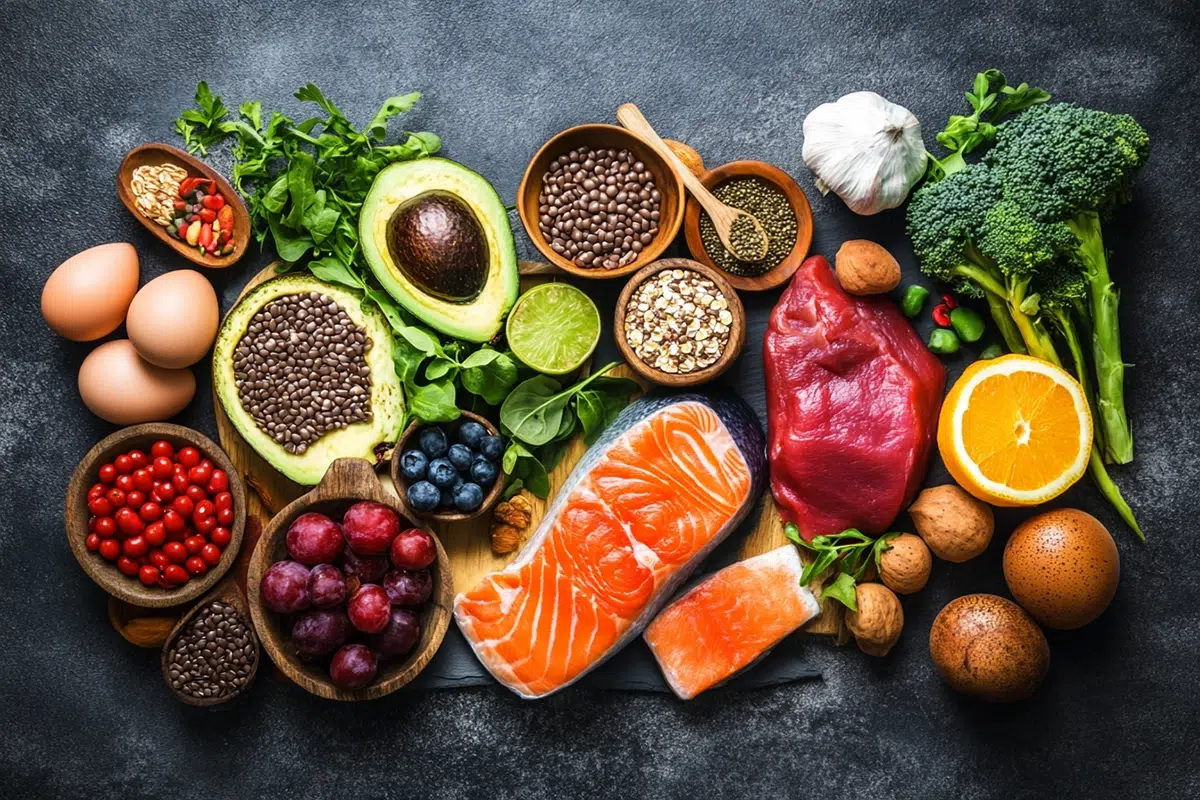Show summary Hide summary

Have you put on weight suddenly and for no apparent reason? Is it possible to put on weight without necessarily eating a lot? Yes, some people happen to put on weight without eating more. But sometimes the causes aren’t so obvious. Some of the many factors that can contribute to unexplained weight gain are: Sedentary lifestyle, age, hormonal imbalance, stress, anxiety and depression, certain medications and lack of sleep.
Want to lose weight? Get a health check first!
Leverage REGIVIA Tools to Achieve Your Objectives:
What are the causes of unintentional weight gain?
If your eating habits haven’t changed but you’ve suddenly put on weight, it may be due to a change in your behaviour, habits or lifestyle. There are many causes for weight gain that we don’t always think about.
Sedentary lifestyle
If you haven’t changed the way you eat, then perhaps the weight gain is due toa lack of exercise. A sedentary lifestyle is a factor in weight gain. In this case, your calorie intake is greater than your energy expenditure, so the calories you don’t burn are stored in your body in the form of fat. Your energy balance is therefore unbalanced, which is why you gain weight. To avoid gaining weight, your calorie intake must be equivalent to your energy expenditure.
Find out your daily calorie requirement: How many calories do you need a day to lose weight?
Hormonal imbalance
Hormonal imbalance can also be the cause ofrapid and unexplained weight gain.
For women, a change of pill or contraceptive method, the premenopause or the menopause can lead to weight gain due to a change in the level of oestrogen in the blood.
Thyroid dysfunction, the gland responsible for regulating hormones, can also lead to weight gain. In this case, it’s important to check that your thyroid is working properly by taking a blood test.
For men, from the age of 50 onwards, the drop in testosterone leads to a loss of muscle mass and encourages the storage of fat.
Emotional eating
Emotional eating is a frequent cause of unexplained weight gain. Emotional eating involves eating to fill a void and soothe an emotion, such as anger, fear or sadness. It can also be the result ofstress, anxiety or anguish.
To get rid of our emotions, we tend to overeat, especially foods high in fat and sugar, and often without really realising it. This usually results in weight gain.
In this case, it is advisable to opt for the “Mindfulness” technique, which involves eating “mind fully” to avoid “eating your emotions”. This method allows you to pay closer attention to your eating habits, so that you are more aware of what you are eating.
This emotional overeating can lead to eating disorders such as bulimia. It is therefore advisable to consult a doctor in the event of serious problems.
Age
Yes, age can make us put on weight!
Weight gain as we age can be explained by a reduction in our basal metabolic rate (number of calories burned at rest). Studies have shown that people over the age of 45 lose an average of almost 10% of their muscle mass every ten years.
As you know, muscle mass has a direct impact on basal metabolic rate. The more muscular you are, the higher your basal metabolic rate and the more calories your body burns at rest. Consequently, the loss of muscle mass with age leads to a lower basal metabolic rate.
So, if calorie intake remains the same, the unburnt calories will be stored, triggering weight gain.
Lack of sleep
Research has shown that if you don’t get enough sleep, you put on weight. Superfluous kilos accumulated unconsciously!
In fact, according to studies, when we lack sleep, appetite hormones are dysregulated. This results in increased levels of ghrelin (the hormone that stimulates appetite) and reduced levels of leptin (the satiety hormone). According to a meta-analysis of studies on the consequences of partial sleep deprivation, sleeping little leads to ingesting more fatty foods and less protein (no variation for carbohydrates) , which would represent 400 extra calories, compared with people who sleep enough.
Medications
You may not know it, but some medicines can lead to weight gain. In general, this undesirable effect is indicated on the medicine’s leaflet, but we are not always aware of it.
Some classes of medication are more likely than others to be associated with a few extra kilos. This is the case for certain contraceptive pills, cortisone, sleeping pills, antidepressants, etc. In all cases, we recommend that you consult your doctor if you experience any unexplained weight gain.
How can you avoid putting on weight suddenly and for no apparent reason?

Here’s a few tips to avoid unintentional weight gain
The good news is that there are many ways to take control of your weight. Here are just a few:
- Tip 1: Adjust your diet according to your daily energy requirements
- Tip 2: Eat better, favouring foods with a high nutritional density and avoiding those with a low calorie density
- Tip 3: Don’t eat when you’re not hungry
- Tip 4: Get enough sleep, between 7 and 9 hours a night
- Tip 5: Eat mindfully to prevent emotional eating
- Tip 6: Regular physical activity to raise your basal metabolic rate
- Tip 7: Consult your doctor about any weight gain linked to taking medication
What are the causes of weight gain?
















